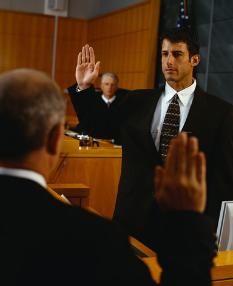 By Jason Hopper
By Jason Hopper
Attorney, Cordell & Cordell
I make the analogy to persons considering self-representation to that of a person who has a cracked tooth or a broken arm deciding to fix themselves without a dentist or doctor.
Can they fix the problem? Certainly. Will they enjoy the long-term ramifications of the “do-it-yourself” fix? Almost certainly not.
In most states, including Indiana where I practice, litigants who choose to represent themselves pro se rather than through counsel are held to the same standards as if they were an attorney.
This means that even if they don’t understand the legalese language or the potential ramifications of the legalese language being used in their divorce decree, the pro se litigant is generally going to be bound by what they produce.
I have seen horror story after horror story of persons who thought they knew what it was they were agreeing to in their divorce documents, only to find out later that they forgot to include provisions for the spouse remaining in the home to refinance the debt, or they forgot to include hold harmless language, and when all the person wants is to move on with their life, they cannot get approved for new credit, or get sucked back in to legal woes with their former spouse who decides not to pay on joint obligations he or she agreed to in the decree.
Many times, the pitfalls associated with a poorly constructed settlement agreement can wind up requiring a party to press the “reset button” on their finances by filing a bankruptcy petition.
Problems can be amplified further in dissolution or paternity matters involving children. Litigants choosing to go it alone often are entering a courtroom for the first times in their lives, and have no training on the rules of evidence or have no idea what it is their family law judge will be looking for in making a divorce and child custody determination, or in reviewing their former spouse’s relocation or modification petition.
Family law attorneys, particularly those who limit their practice solely to domestic litigation, have spent years honing their skills not only in court, but also on a pre-trial basis in preparing the case for trial through discovery and deposition processes.

Jason P. Hopper is an Associate Attorney in the Indianapolis, Indiana office of Cordell & Cordell, P.C. where his primary practice is exclusively in the area of domestic relations. Mr. Hopper is licensed in the state of Indiana – All State and Appellate courts, US District Court Northern District Indiana, US District Court Southern District Indiana, US Bankruptcy Court Southern District Indiana.

